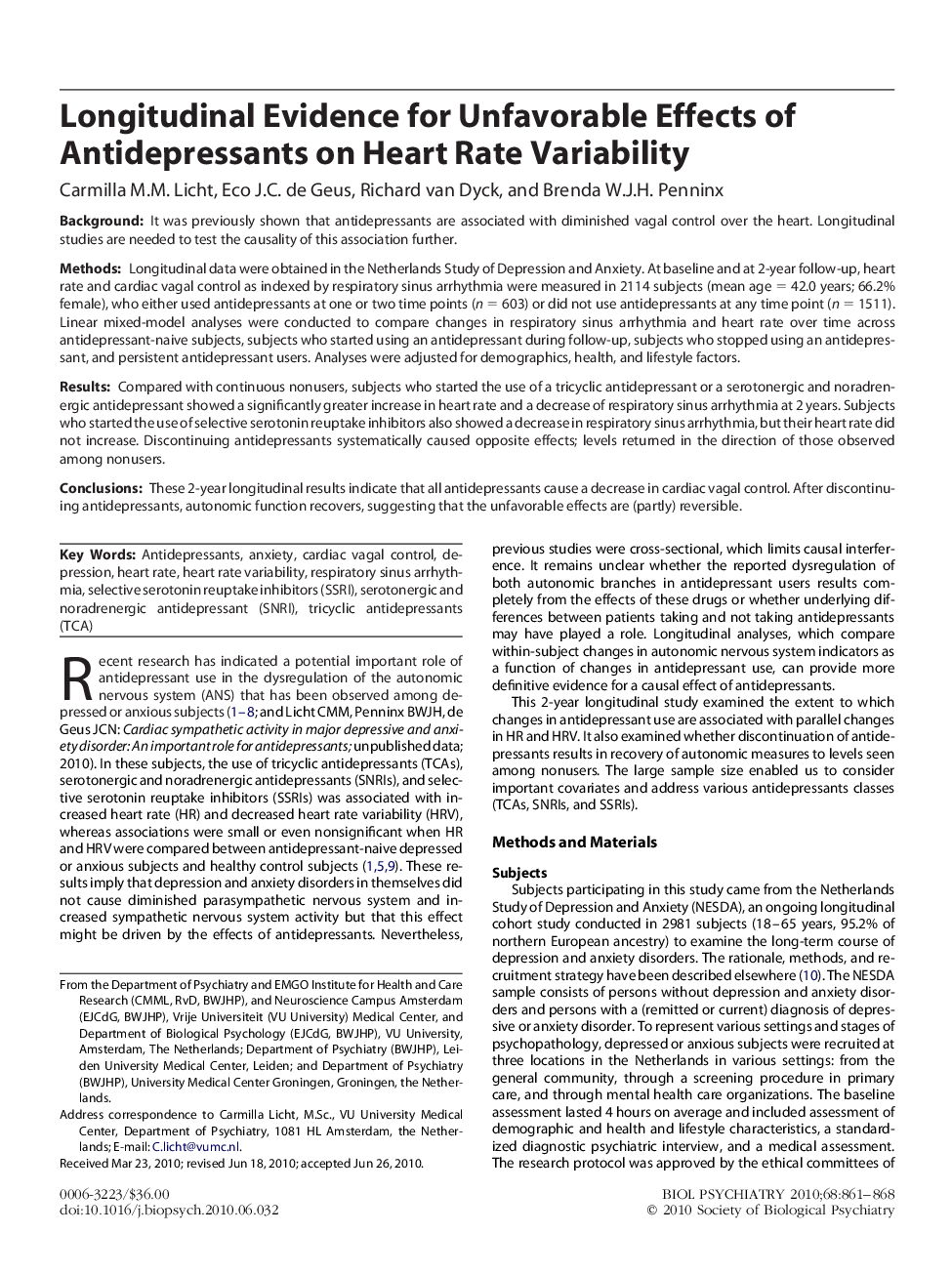| Article ID | Journal | Published Year | Pages | File Type |
|---|---|---|---|---|
| 4179890 | Biological Psychiatry | 2010 | 8 Pages |
BackgroundIt was previously shown that antidepressants are associated with diminished vagal control over the heart. Longitudinal studies are needed to test the causality of this association further.MethodsLongitudinal data were obtained in the Netherlands Study of Depression and Anxiety. At baseline and at 2-year follow-up, heart rate and cardiac vagal control as indexed by respiratory sinus arrhythmia were measured in 2114 subjects (mean age = 42.0 years; 66.2% female), who either used antidepressants at one or two time points (n = 603) or did not use antidepressants at any time point (n = 1511). Linear mixed-model analyses were conducted to compare changes in respiratory sinus arrhythmia and heart rate over time across antidepressant-naive subjects, subjects who started using an antidepressant during follow-up, subjects who stopped using an antidepressant, and persistent antidepressant users. Analyses were adjusted for demographics, health, and lifestyle factors.ResultsCompared with continuous nonusers, subjects who started the use of a tricyclic antidepressant or a serotonergic and noradrenergic antidepressant showed a significantly greater increase in heart rate and a decrease of respiratory sinus arrhythmia at 2 years. Subjects who started the use of selective serotonin reuptake inhibitors also showed a decrease in respiratory sinus arrhythmia, but their heart rate did not increase. Discontinuing antidepressants systematically caused opposite effects; levels returned in the direction of those observed among nonusers.ConclusionsThese 2-year longitudinal results indicate that all antidepressants cause a decrease in cardiac vagal control. After discontinuing antidepressants, autonomic function recovers, suggesting that the unfavorable effects are (partly) reversible.
